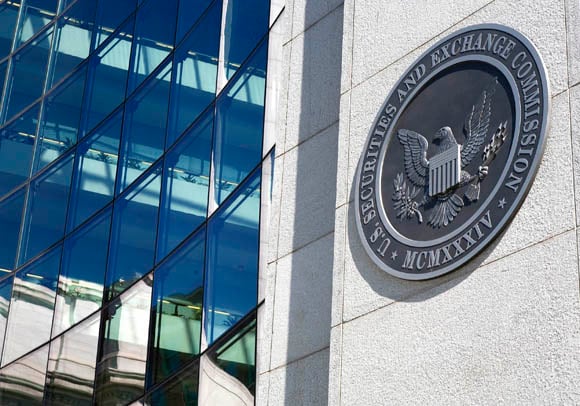Dually registered advisers not utilizing relief, regulator says
The Securities and Exchange Commission is terminating a rule that has eased dually registered advisers' ability to trade out of their own inventory with clients in advisory accounts.
Temporary Rule 206(3)-3T was adopted in 2007 to help brokers who also are registered investment advisers bypass a section of the Investment Advisers Act of 1940 requiring them to disclose in writing on a trade-by-trade basis when they are acting as principal and to receive consent for each trade from the client.
The temporary rule allows disclosure to be made orally and lets clients give consent for such trades prospectively.
The practical effect of the act's original Section 206(3) strictures was to force clients seeking access to a firm's principal inventories “no choice but to open a traditional brokerage account in which they will pay transaction-based compensation in lieu of an advisory account in which they would pay an asset-based fee,” the SEC wrote when it adopted the “3T” rule in 2007.
But in a letter sent Monday to the Securities Industry and Financial Markets Association, Andrew “Buddy” Donohue, director of the SEC's Division of Investment Management, said that the liberalized rule will expire at year-end because “we understand that few firms today are relying on rule 206(3)-3T.”
The letter, available on the SEC's website, didn't detail why dually registered advisers have been reluctant to use the relief. Under the temporary rule, they are still required to disclose information about their principal trading on confirmation statements and to give written prospective disclosure about the conflicts arising from principal trades. It also mandates that dually registered advisers deliver an annual report itemizing principal transactions made with each client.
"The temporary rule provided limited relief," David Tittsworth, executive director of the Investment Adviser Association, said in an e-mail. "Various provisions of the Dodd-Frank Act have certainly put 'harmonization' of broker-dealer and investment adviser regulations on the SEC's agenda. Given the brokerage industry's extreme distaste for the principal trading restrictions under the Advisers Act, it is certainly possible that there will be efforts to find a way to make it easier for them to conduct principal transactions."
The SEC will continue to evaluate requests for relief from Section 206(3) of the Advisers Act, making decisions based on whether they are “necessary or appropriate in the public interest and consistent with the protection of investors,” according to Mr. Donohue's letter.
John Taft, the incoming chairman of SIFMA, the securities industry's main trade group, said that the SEC may broadly consider alternative methods of disclosure in order to preserve investor choice as it works out a fiduciary standard for broker-dealers who give advice to retail clients.
“Trade-by-trade consent is not workable for our industry,” he said. “There is no way you can get that in an industry that effectuates millions of transactions an hour.”







